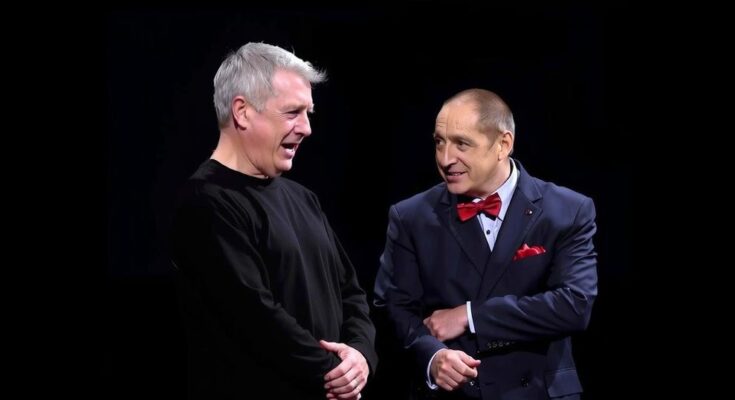Elon Musk accused Jeff Bezos of advising others to sell Tesla shares based on an alleged belief that Donald Trump would lose the election. Bezos denied this claim. The rivalry reflects deeper issues in business and politics, particularly following the significant rise in Tesla’s stock post-election. Both leaders have strategic yet contrasting approaches to their public personas and political endorsements.
In a recent exchange on social media, Elon Musk claimed that Jeff Bezos had advised individuals to sell their Tesla shares, suggesting that Donald Trump was certain to lose the recent presidential election. Musk’s post on X, previously Twitter, came after he learned about this alleged recommendation while attending an event at Mar-a-Lago. Bezos promptly denied the assertion, stating, “Nope. 100% not true,” to which Musk humorously responded, “Well, then, I stand corrected,” adding a laughing emoji to his message.
The rivalry between Musk and Bezos has resurfaced, particularly in light of the implications of the election results on their respective companies. Tesla’s stock value has seen significant fluctuations this month, influenced by Trump’s backing and Musk’s substantial financial contributions to his campaign. Following the election, which resulted in a 40% increase in Tesla’s shares in the subsequent week, Musk acknowledged that he would have faced serious consequences had Trump lost the election.
Bezos, meanwhile, has navigated his own political space more cautiously. He has refrained from endorsing either presidential candidate, asserting that such endorsements contribute little to electoral outcomes and can foster perceptions of bias. His decision to eliminate endorsements—reflecting a principled stance on maintaining independence—further contrasts with Musk’s overt political engagement.
The ongoing rivalry between the two billionaires is not limited to politics; it extends into the realm of space exploration, as evidenced by Amazon’s significant investments in Project Kuiper. This project aims to deploy satellites for internet services, successfully launching contracts without engaging Musk’s SpaceX, which has actively been promoting its Starlink services. The shareholders of Amazon have criticized this exclusion as driven by Bezos’s personal rivalry with Musk, further complicating the competitive dynamics in the private space sector.
This feud has historical context, as both leaders have publicly clashed before, with Musk infamously suggesting that Bezos has spent his retirement pursuing litigation against SpaceX. As their businesses continue to evolve in a rapidly changing landscape, the tension between Musk and Bezos is emblematic of larger issues in the intersection of politics, commerce, and technological advancement.
The history of conflict between Elon Musk and Jeff Bezos underscores their rivalry not only in the spheres of electric vehicles and space exploration but also in their public personas and political alliances. Musk’s active support of Trump’s candidacy and Bezos’s neutral political stance highlight contrasting approaches to business strategy and stakeholder engagement. Both billionaires’ decisions can significantly influence their enterprises’ fortunes, especially given the volatile nature of the stock market and technological innovation.
In conclusion, the rivalry between Elon Musk and Jeff Bezos continues to play out against a backdrop of personal conflicts and strategic business decisions. Musk’s social media claims regarding Bezos and their implications on stockholding serve as a reminder of how intertwined politics and business can be in the high stakes realm of technology and innovation. As they navigate these competitive landscapes, their actions will likely shape the future of their respective companies and the industries in which they operate.
Original Source: fortune.com




